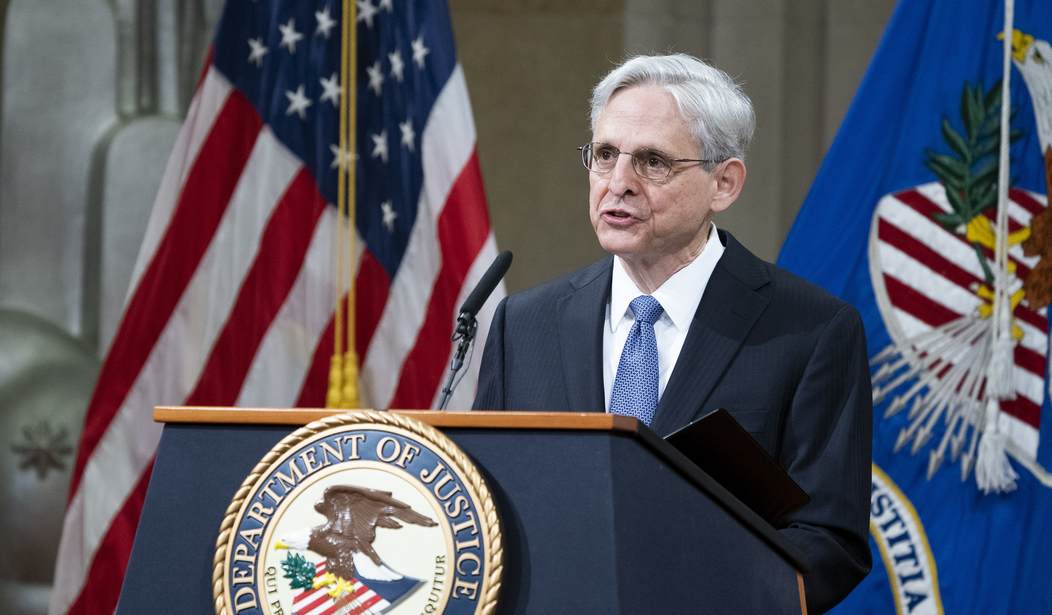On Tuesday, the Department of Justice (DOJ) announced that it was suing Idaho for its abortion ban, which is set to go into effect on August 25. This comes even after the U.S. Supreme Court handing down the Dobbs v. Jackson decision on June 24, which overturned Roe v. Wade, thus handing the power back to individual states to decide their own abortion laws.
The Department of Justice and Attorney General Merrick Garland have announced a lawsuit against the state of Idaho's abortion laws. pic.twitter.com/MKSR6AdSil
— Townhall.com (@townhallcom) August 2, 2022
As laid out in a press release, the DOJ is arguing that the Idaho law conflicts with and is preempted by federal law:
The complaint seeks a declaratory judgment that § 18-622 conflicts with, and is preempted by, the Emergency Medical Treatment and Labor Act (EMTALA) in situations where an abortion is necessary stabilizing treatment for an emergency medical condition. The United States also seeks an order permanently enjoining the Idaho law to the extent it conflicts with EMTALA.
...
EMTALA requires hospitals that receive federal Medicare funds to provide necessary stabilizing treatment to patients who arrive at their emergency departments while experiencing a medical emergency. When a physician reasonably determines that the necessary stabilizing treatment is an abortion, state law cannot prohibit the provision of that care. The statute defines necessary stabilizing treatment to include all treatment needed to ensure that a patient will not have her health placed in serious jeopardy, have her bodily functions seriously impaired, or suffer serious dysfunction of any bodily organ or part.
...
Idaho’s criminal prohibition of all abortions, subject only to the statute’s two limited affirmative defenses, directly conflicts with EMTALA and stands as an obstacle to the accomplishment of EMTALA’s federal objectives of providing stabilizing care and treatment to anyone who needs it.
Recommended
The Idaho law contains exceptions for reported cases of rape and incest, and when the mother's life is at risk. According to state law, this is when a physician deems "in his good faith medical judgment and based on the facts known to the physician at the time, that the abortion was necessary to prevent the death of the pregnant woman."
The DOJ under the Biden administration has gone after pro-life laws before, including when it comes to the Texas Heartbeat Act. However, such intervention from the federal government came before the Dobbs v. Jackson decision was handed down, when Roe v. Wade and its strict confines were still the law of the land.
In a press conference that same day, Attorney General Merrick Garland was asked about and answered to the significance of the federal government getting involved with state abortion laws in a post-Roe America.
REPORTER: "What's the point of the Supreme Court if DOJ is going to go around and do these kinds of things? Will there be other states like this?"
— Townhall.com (@townhallcom) August 2, 2022
AG GARLAND: "This is not in any way going around the Supreme Court." pic.twitter.com/06jHcSTLBR
During the press conference, a reporter asked "what's the point of the Supreme Court if DOJ is going to go around and do these kinds of things. Will there be other states like this, you think?"
The attorney general initially did not seem to understand the question, beginning his response by noting "I'm not sure what you mean by 'what's the point of the Supreme Court.'" This prompted the reporter to repeat his question in that "if DOJ is going to go around the Supreme Court--" before Garland cut him off to say "this is not in any way going around the Supreme Court," mentioning "the Supreme Court said that each state can make its own decisions with respect to abortion, but so to can the federal government." He added that the supremacy clause means federal law, like EMTALA, invalidates conflicting state laws.
Garland doubled down by emphasizing "this has really nothing to do with anything the Supreme Court said, and certainly nothing to do with going around the Supreme Court."
That same press release mentioned above did tout the DOJ's involvement in protecting abortion.
"On the day Roe and Casey were overturned, we promised that the Justice Department would work tirelessly to protect and advance reproductive freedom," Garland is quoted as saying. "That is what we are doing, and that is what we will continue to do. We will use every tool at our disposal to ensure that pregnant women get the emergency medical treatment to which they are entitled under federal law. And we will closely scrutinize state abortion laws to ensure that they comply with federal law."

























Join the conversation as a VIP Member